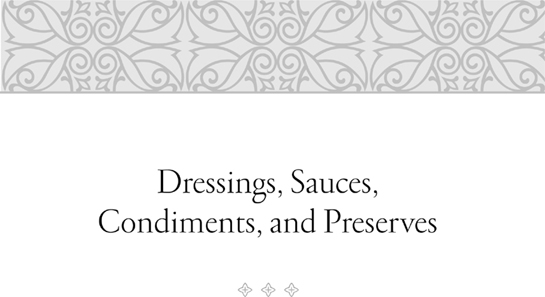


IN THE MEDITERRANEAN KITCHEN salads are dressed simply, with a rich and flavorful olive oil, the very best extra-virgin oil the cook can afford, often the product of the family’s own groves of stately olive trees. To this good oil will be added a little (often a very little to American taste) vinegar or lemon juice, salt, and pepper. This is the quickest and easiest dressing in the world to prepare, and when you have the best oil you can find and the quality of your other ingredients matches it, there is no need for a cupboard full of bottled dressings.
Mediterranean cooks are puzzled by the American rage to change the flavor of good oil by steeping intense aromatics in it. Add the aromatics to the dressing, not the oil, and use it right away. Additions of chili or garlic, rosemary or basil will disguise the character of an indifferent oil, such as canola or corn oil, but steeping chili peppers or garlic in the best extra-virgin olive oil only masks its lush, fresh, and elegant flavor.
Whether vinegar or lemon juice, acid should be added with a judicious hand. American salad dressing is both overly sweetened and overly acid by Mediterranean standards. This would be simply a matter of taste were it not for the wine issue—an acid dressing makes salad inappropriate to serve with wine, and there’s always wine to finish at the end of the meal and perhaps a bit of cheese to go with the salad. Ergo … a good oil-to-acid proportion is about three to one; four to one is better if you expect to have wine with the salad. A few drops of balsamic vinegar are not inappropriate in a dressing for a very simple green salad, but balsamic vinegar should not be treated as an expensive cure-all for salad dressing woes—rather, it’s a precious ingredient to be treated with respect and understanding.